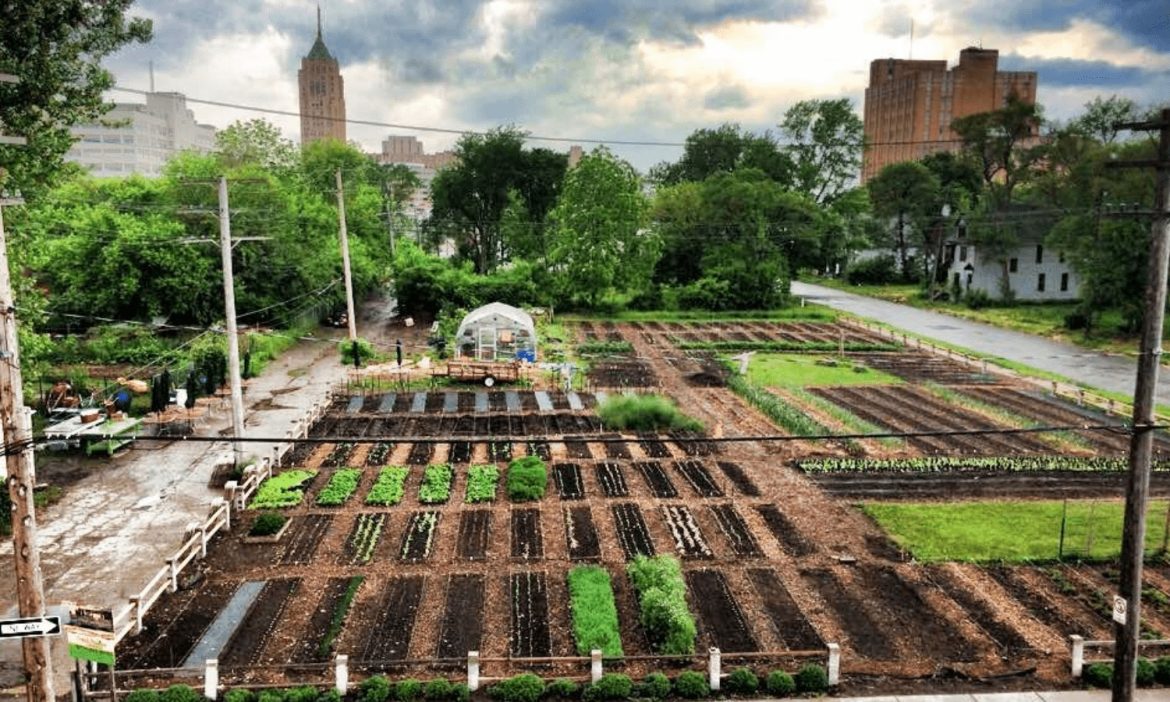Urban farming, once a niche practice, has gained momentum in recent years as cities around the world seek sustainable solutions to food production and distribution. With populations increasingly concentrated in urban areas, traditional agricultural practices are facing challenges such as limited space, water scarcity, and environmental degradation. Urban farming initiatives offer a promising alternative, leveraging innovative techniques and technologies to grow food locally and sustainably within city limits.
Types of Urban Farming
1. Rooftop Gardens
Rooftop gardens are one of the most common forms of urban farming, utilizing underutilized spaces atop buildings for growing fruits, vegetables, and herbs. These gardens not only provide fresh produce but also offer numerous environmental benefits, such as reducing urban heat island effects, improving air quality, and capturing rainwater runoff. Rooftop gardens can be found on a wide range of buildings, from residential homes and commercial properties to schools and community centers, making them accessible to urban residents of all backgrounds.
2. Vertical Farming
Vertical farming involves growing crops in vertically stacked layers or towers, often indoors or in controlled environments such as greenhouses. This innovative approach maximizes space efficiency and allows for year-round cultivation regardless of external climate conditions. Vertical farming systems typically utilize hydroponic or aeroponic techniques, where plants are grown without soil and receive nutrients through a water-based solution. By minimizing water usage, reducing land footprint, and optimizing growing conditions, vertical farming holds great potential for increasing food production in densely populated urban areas.
Benefits of Urban Farming
Urban farming initiatives offer a wide range of benefits for cities, residents, and the environment.
1. Food Security
One of the primary benefits of urban farming is improved food security. By producing food locally within city limits, urban farming initiatives reduce dependence on distant agricultural regions and long supply chains, which are vulnerable to disruptions such as natural disasters, transportation bottlenecks, and market fluctuations. This localized approach to food production ensures a more resilient and sustainable food system, particularly in times of crisis or uncertainty.
2. Environmental Sustainability
Urban farming promotes environmental sustainability by reducing the carbon footprint associated with food production, transportation, and distribution. By growing food closer to consumers, urban farming initiatives minimize the energy required for transportation and storage, resulting in lower greenhouse gas emissions and air pollution. Additionally, practices such as composting, rainwater harvesting, and organic farming methods further enhance the environmental benefits of urban farming, creating a more circular and regenerative food system.
Challenges and Opportunities
While urban farming offers numerous benefits, it also presents challenges that must be addressed to realize its full potential.
1. Land Access and Zoning Regulations
One of the primary challenges facing urban farmers is access to land and navigating complex zoning regulations. Many cities have strict zoning laws that restrict agricultural activities in residential or commercial areas, making it difficult for urban farmers to find suitable land for cultivation. Addressing these regulatory barriers and creating incentives for urban agriculture can help unlock the potential of urban farming initiatives and promote their widespread adoption.
2. Economic Viability
Another challenge is the economic viability of urban farming ventures. While urban farming can be financially sustainable through direct sales to consumers, restaurants, and farmers markets, it often requires significant upfront investment in infrastructure, equipment, and labor. Access to capital, technical assistance, and marketing support can help urban farmers overcome these financial barriers and establish successful and profitable enterprises.
The Future of Urban Farming
Despite these challenges, the future of urban farming looks promising as cities increasingly recognize the importance of sustainable food production and local resilience. By fostering collaboration between government agencies, community organizations, and private sector stakeholders, cities can create an enabling environment for urban farming initiatives to thrive. With continued innovation and investment in urban agriculture, cities can revolutionize food production, promote environmental stewardship, and improve the health and well-being of urban residents for generations to come.



